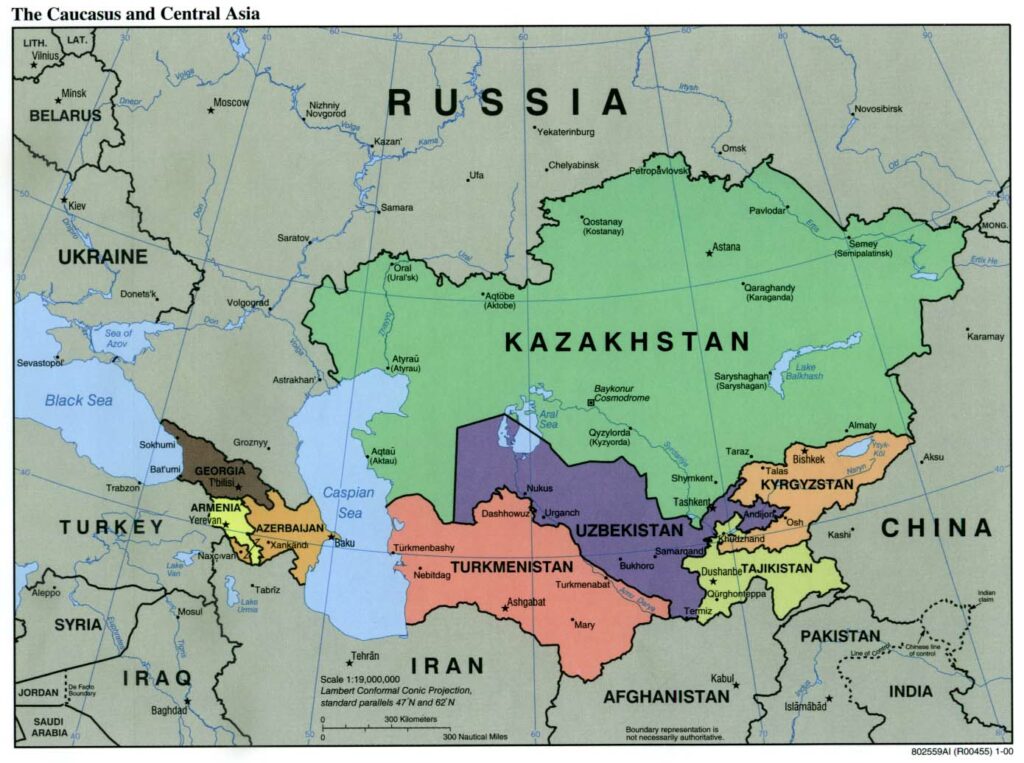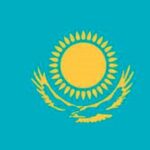That the Russians and Belarusians are invading Kazakhstan right now is no wonder at all: the subversives, protesting against higher gas and fuel prices, also demanded that Kazakhstan abandon all alliances with Russia and that both President Tokayev and the government resign immediately. Moscow cannot put up with such political demands. Kazakhstan is a major oil and gas producer and also supplies about 40 per cent of the world’s uranium. Kazakhstan is home to a number of first-class mining companies: Lukoil from Russia, CNPC from China, Chevron and ExxonMobil from the USA, Shell from the Netherlands, ENI from Italy, and Total from France. Insofar as oil and gas extraction has been allowed to the foreign corporations, uranium extraction remains in Kazakh hands. It is a tasty morsel for all the countries that talk so much about green energy at the moment, but in fact are preparing for the future that will be based on nuclear energy. After all, Russia’s nuclear missiles and power plants, Baikonur and space presence depend on Kazakhstan.
Rioters topple statues of Nursultan Nazarbayev, the “Elbasy”, the father of the nation, as Nazarbayev is called for life, the man who once guaranteed friendly relations with Moscow as long as he was honorary chairman of the Security Council. The Nazarbayev-Tokayev tandem has been uneasy for some time, however, and now the Father of the Nation left his fatherland aboard the private plane of his son-in-law Timur Kulibayev, a billionaire and one of Kazakhstan’s richest men. We know such stories from different countries. Main characters: oligarchs serving foreign capital. Behind the protests could be Mukhtar Ablyazov, another controversial oligarch who is at odds with the current government team in Kazakhstan and who used to live permanently in Paris, but is now in Kiev. Please note: in Kiev. If you think about the role of the oligarchs in the upheavals in Ukraine in recent years and at present, it will immediately become clear to you that this is an attack by the West, namely the USA and Ukraine, who want to “facilitate” the forthcoming talks between Biden and Putin with a blow to the “soft underbelly” of Russia, i.e. Kazakhstan.
Tokayev has also taken advantage of current events domestically to remove the government that was loyal to Nazarbayev and especially Abish Satidbaldila, the former president’s “man” who was deputy chairman of the Public Security Committee. As a result, Tokayev took full power, which enabled him to get rid of Nazarbayev painlessly. From Moscow’s point of view, what happened is actually a palace revolution, a shock. Not only because, as it turned out, in practice there is no ironclad guarantee of life for the former head of state, but also because Putin has been demonstrably respectful towards Nazarbayev and somewhat, perhaps even more, disrespectful towards Tokayev. At the recent CIS summit in St. Petersburg, he met with “Elbasy” and found no time to talk to the current president. It is likely that if a new government is formed, relations with Moscow will be different and probably more difficult for Russia.
The Western world is enthusiastic about the revolution and interprets what is happening on the streets as a struggle against dictatorship and for democracy, but it seems to me that this perspective is misleading and that it is worth looking at the situation in Kazakhstan from a different, non-European angle. We tend to see the roots of the revolutionary events in the bad mood related to poverty and the lack of reforms in the authoritarian state, which drives people to the extreme and to the streets. Apart from what can be seen with the naked eye and what is difficult to question, there is an even deeper level, which is the logic of the people living there. In any Central Asian society, clan and family relations are more important than political divisions or material differences.

Source: https://followthepin.com/where-is-kazakhstan/
Until now, Kazakhstan has been ruled by families belonging to the so-called Elder Zhuz, to which both Nazarbayev and Tokayev belong, although they are enemies. The families that make up the so-called Younger Zhuz (hordes) have their centre of influence in the west of the country, including the provinces where protests are strongest. Their leaders are unhappy that despite the fact that oil and gas are produced in the west, which brings the most revenue to the country, the Younger Zhuz are virtually ignored in the distribution of wealth. So Tokayev is looking for a new formula for agreement between the Elder and Younger Zhuz. This would come at the expense of Nazarbayev’s oligarchy and create a new consensus in Kazakhstan that will not entirely please both Moscow and China.
In the west of the country, after all, there were stormy anti-Chinese demonstrations a few years ago, and a movement emerged that led first to a moratorium and then to a ban (instigated by Tokayev) on the sale of Kazakh land to foreigners. Tokayev aimed primarily to counter Chinese domination, while at the same time cleverly flirting with Kazakh nationalist circles, who early last year organised language patrols to ensure that only Kazakh rather than Russian was used as a second official language in public places. Tokayev can hardly be described as anti-Russian, but if he seeks to reach an understanding with the clans in the country’s west, which is considered less friendly with Moscow, he will have to correct Kazakhstan’s course; in the entire community of states that once made up the Soviet Union, even a small correction could be of fundamental importance.
The outcome of the events in Kazakhstan remains to be seen, but the political and geostrategic consequences of what happens will certainly be serious, both for this Central Asian country and for the region, and possibly also for the balance of power in the world. It is worth recalling Mackinder’s most famous geopolitical concept, the pivot areas: whoever rules the so-called heartland rules the world, and since Asia is now becoming the economic centre, Central Asia and the former Soviet republics there are particularly important for the great powers.




